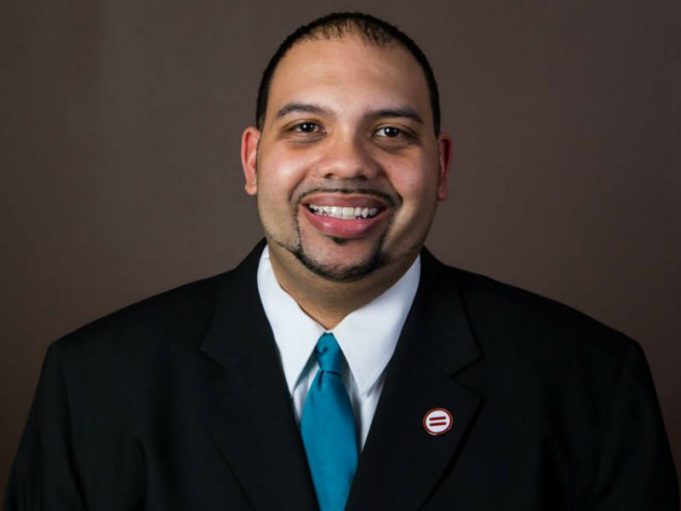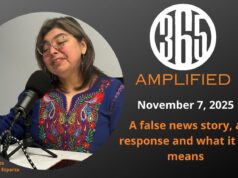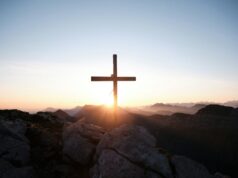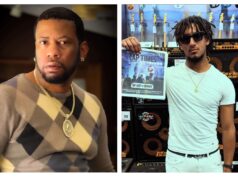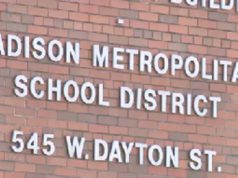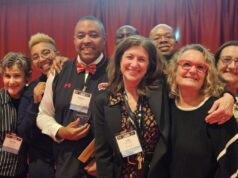Born and raised in a mixed-race household on the North Side, a graduate of MPS schools and then UWM with a Business Administration degree and now an investment client services specialist at Northwestern Mutual, Sean Lowe likes to say he’s “Milwaukee made.”

And, as the president of the Milwaukee Urban League Young Professionals – one of multiple executive boards on which he serves – Lowe’s mission is to keep others that are made in Milwaukee, like him, in the city. An auxiliary arm of the Milwaukee Urban League that strives to involve young professionals in the national organization’s movement toward achieving social and economic equality, the MULYP focuses on community service through a variety of sponsored projects, fundraising activities, cultural events, leadership development workshops and political forums. Lowe spends a great deal of time and effort trying to retain the talent Milwaukee has, rather than watching it leave for other opportunities and another city.
At 35, Lowe is an older millennial who’s seen three decades of racial inequality and growing disparity between blacks and whites in Milwaukee impair and divide the city, but who is also still young enough to connect to the African-American teenagers and 20-somethings now taking up the activist charge locally and across the nation. With a diverse background, affable personality and social media savvy, he also has a unique ability to bring different people, perspectives and ideas together to try and advance economic empowerment, educational opportunities and civil rights for African Americans in Milwaukee.
We sat down with Lowe to discuss his reaction to the Sherman Park shooting and protests, how to have a conversation about race and racial issues that actually produces change, MULYP’s goals and initiatives for engaging its community, the importance of people getting outside their comfort zones and especially expanding their circles of friends, and the role of white people, media and social media in addressing major institutional issues surrounding race in Milwaukee.
OnMilwaukee: Can you tell me about the weekend of Aug. 13-14 in Sherman Park? When did you hear about the shooting and then just take me through how you processed that, the protests, everything that happened, conversations you had with people and your involvement, if any?
Sean Lowe: I actually just finished a gathering with several of my out-of-town colleagues from the National Urban League Young Professionals. I had a professional development conference on Saturday, ironically all about being more involved in the community, personal-professional development amongst young professionals. How we need to play an active role in the community, and then this happened.
I heard about it, really late night, from the news stations and interviews. I really didn’t process everything until the next day, until I was able to watch more of the news and see more articles regarding it and looking on Twitter. I think that’s when it really hit me that this was something major that was going on – when I went to Twitter and I saw Milwaukee as the number one trending topic for quite some time, that this was national news and didn’t realize buildings had been burned down until Sunday morning, and I felt compelled to do something and advocate for this, for the city. Honestly I’m shocked something like this hasn’t happened sooner with all of the poverty in the city.
You hear things like Gov. Walker saying, “Sherman Park’s a good neighborhood. This is a real shame because it doesn’t represent Sherman Park.” And then people like Alderman Rainey, who said, “This was a powder keg. It was going to happen somewhere at some point.” We have all these terrible systemic issues in black Milwaukee – unemployment, education, incarceration, poverty – it sometimes seems like those become almost buzzwords now, that people are desensitized to them, but they’re obviously huge, important, major problems. You said you’re surprised this hadn’t happened sooner; in retrospect, did you see this coming? Do you think it was inevitable, given the social climate in the city?
Absolutely. It was definitely a powder keg waiting to happen. I definitely echo Alderman Rainey that from the lack of jobs, the lack of transportation, the education issue in the city, where over three-quarters of MPS students are living in poverty. There is just a variety of issues that’s been going on for years that have been ignored. A lot of that is due to the segregation of the city. You have people in pockets of the city and outside where certain issues don’t affect them, depending on what neighborhood they’re in. It leaves a lot of worry to the nonprofits and the elected officials and the police to sort of focus on all of these issues stemming from one area and not enough resources to really address the issues.
After something like this happens, you hear a lot of people saying, “We need to have a serious conversation about race, Milwaukee. This is a serious issue.” But often it feels like that conversation either isn’t authentic or doesn’t really lead to anything, sort of a talk-is-cheap situation. In your opinion, who needs to be sitting at that table having that conversation? And what do they need to talk about first? What does the discussion look and sound like?
I think it’s the people who are really out here in the community, really looking into all of the issues and the root causes and who know the city. It needs to be young professional leaders who are ready to get their hands dirty. Not just talk about the issues, but actually go into the community. On Sunday, I spent two or three hours at Sherman Park, right outside at the gas station meeting with the residents, people in the community. I met the brother of the gentleman who was shot and spent time consoling him. We have to have a presence inside of the community and start engaging the youth.
Not only elected officials need to be at the table, but those people who want results and have the solutions, as well. Because you could have the statistics, but if you don’t have the solutions to the problem, we’re back at square one. I want to start surrounding myself with the people who are willing to initiate the change that is needed. Not all of it is money related. Obviously that plays a big part of it, but a lot of the youth just need mentors and guidance. That’s something that can be done for free.
It’s a variety of things that are needed. For example, let’s say we give out one million dollars in scholarships to high school seniors in the city. As soon as they graduate, they’re going to leave Milwaukee and not come back. That’s why, as an Urban League and as the Milwaukee Urban League Young Professionals, one of the things we lobbied for was the (Bucks) arena to be done. We knew that young professionals, in order for them to stay here, we need those economic resources and those jobs and that job creation. I think that having jobs that access those urban communities will alleviate some of that and give them something to do, somewhere to go, a sense of pride about their community, because that’s their job.
You’re not going to burn down your friend’s job, your cousin’s job. I think that’s part of it, as well, looking at the people who work there in the urban community. Were they burning down places that their friends worked? Probably not. I think that it’s also a sense of people don’t have their voices heard. Martin Luther King was quoted as saying, rioting is the language of those that aren’t heard. I think that these people feel that they’ve been unheard for too long. Now we have to really open our eyes to the statistics that have been going on for years and the problems that have been going on for decades in the city. I think that jobs and access to jobs in urban areas will help alleviate these issues, as well.
With the arena specifically, is that a difficult conversation to have? I mean, is it a tough sell to the African American community, asking for public money to build this billion-dollar thing Downtown when there are other major social issues being ignored or underfunded?
Yes. It was a very tough sell to some people. I think some people got it right away and some people were a little hesitant to buy into it. It was from the simple standpoint of, there’s only so many teams in the NBA, only so many professional basketball teams. For us to have one of them is huge, and it’s a drawing point for many young professionals to the city.
What other things are you advocating for in order to incubate the talent, keep people here in Milwaukee? What else is the Urban League doing?
I think as young professionals move here – and a lot of our membership is transplant professionals – they still have a sense of giving back to their adopted city. That’s what I’m trying to push to our membership, so we can mentor the youth and do other types of engagement activities, such as giving out scholarships for our Dating Game fundraiser that we have every year. Things like that. We have a sense of … It’s a fun activity that young professionals can do and we tie it into giving back. Anytime we have a party with our organization, we’re partying for a purpose. We make sure that our time, money and efforts go right back into the city of Milwaukee to our Urban League affiliates for people that need access to jobs.
When you think about what happened in and around Sherman Park, and given your sentiment that it was going to happen sooner or later, do you think something positive will come out of it? Not to say that there’s ever a silver lining to tragedy or violence, but in terms of addressing major issues in the city and having legitimate conversations for change, could something truly good emerge from something so bad? Do you believe it will, given Milwaukee’s history and makeup?
I think the positive outcome of this is all the attention on Milwaukee. Not just the local attention, but the national attention on, again, issues that have been there for years. I think the shooting plays a 1 percent role of what really is transpiring here, and that is that the city is fed up. Police and African-American tensions are already at an all-time high. Whether it’s a black cop, a Hispanic Cop, a white cop, police relations and African-American relations, and especially with the youth, that tension is at an all-time high. Any time there’s an incident like that, where it’s even a question of was it justified or not – whether it was or not, if it’s even questionable to the slightest degree – the results that we have today are from what happened.
My thing too is, when the cameras go off and the national spotlight isn’t on Milwaukee anymore, we still have to address these issues. Just like Flint, Michigan, and the water crisis there. They’re still dealing with those issues and it has not been resolved yet. One hundred percent of people in Flint, Michigan are still hurting. But now it’s on to the next news story. That’s just the sad part about the situation, is that these issues have been going on for years. We have to make sure that our community takes time to address our issues or else it’s going to hurt the city from a recruitment standpoint of professionals, with all the negative press that we’ve been getting.
I think a lot of white people here think that because they’re not actively discriminating and overtly racist, in their language or actions or beliefs, that they’re not oppressive or part of the problem. But obviously studies and articles and anecdotal history indicate Milwaukee has enormous racial and integration issues. You’ve been to other cities and work with people from elsewhere; how do you view racism and race relations in Milwaukee? How do white people, who may be well-meaning, become more proactive in trying to shrink inequality gaps here? How do they help and what is their role?
One of the biggest issues is the segregation in Milwaukee – that you only see the type of African-Americans or Hispanics or whites that you see on TV or read about in the media. Right now it’s not having that positive light and painting the good picture of African-Americans, if the front page of the paper says we’re all rioters or looters. People tend to stereotype and categorize them into one bucket of type of people and not see the economic and other issues that have plagued the country for centuries. In terms of Milwaukee, in other cities – and a lot more affluent cities than Milwaukee – people are living everywhere, because there’s access to wealth and income in various neighborhoods and the intermix of the schools, as well, and not so much segregation in the public schools.
If you alleviate the segregation in public schools, that’s going to help alleviate these larger issues, as well. As far as how can white people help – that don’t necessarily live in the city of Milwaukee, but live in the suburbs – donating to nonprofits, sitting on nonprofit boards, making sure they’re a part of the annual United Way campaign and New Path campaigns. Make sure they’re giving back and having an active participation in nonprofits, is definitely the best start.
So getting outside of your comfort zone, being involved in different communities and causes?
Yes. Here’s the thing: I say start it now. You may not have the income to write a $10,000 check to a nonprofit, but then you have the time. If you’re in an entry-level position, just starting out, or you’re not at the executive level yet, you have more time to give. I think that’s where you balance it out, where, OK, I have an extra 10 hours a month, or 10 hours a week, where I could volunteer somewhere and gain a whole other skillset that also you may not have had before, in terms of your engagement with a nonprofit.
But I think the companies have to get involved, because people can’t drive into the city for work and then drive back out to the suburbs at night and not address the issues that we really have to get people involved in with every aspect of their lives. Whether it’s their job, their families, where they’re giving back and having a day of service in the community, so their kids can see what’s going on out here, they can see what’s going on out here. Not so much just assuming that Sherman Park and all of Milwaukee, that anywhere outside of downtown, is a horrible place and a horrible neighborhood with horrible people that you can’t enter and go to. That you’re on a certain street and you’re fearing for your life, that all of these people act a certain way, when these people are our neighbors, our brothers, our fathers, our sisters. We just alleviate all of the stereotypes and stop ignoring the elephant in the room, which is the race relations in the country, which definitely have to improve and get better.
Is it important for people to be vulnerable, not in terms of feeling unsafe in a place, but about understanding disparities and admitting there’s a real problem with inequality when it comes to race in Milwaukee? Like getting out of your comfort zone and actually being uncomfortable, in order to talk to different people and interact and empathize and, sort of, try and walk a mile in someone else’s shoes? How can that happen? Can it happen naturally or does it need to be almost forced? And do you think that’s important, too, rather than just writing a check and going back to your house in Whitefish Bay or wherever?
Right. I think it’s expanding your circle of friends. If you’re liberal, finding some conservative friends and vice-versa. I think that if you are black, finding some white and Hispanic friends, as well, and other ethnicities and supporting people in the LGBT community. Making sure that we talk to different people and having a diverse circle of friends. I think that’s what hurts Milwaukee too. If you’re so segregated and you’re growing up, you’re only going to hang out and talk to the people in your neighborhood.
In other cities that are diverse and a lot less segregated, well, they already have a circle of friends who may not look like them. As they grow up and get placed into roles in the business community, that’s going to lead to a lot more hiring amongst people who don’t look like them, a lot more understanding of different cultures and alleviate so many issues already, before they even get their first job. I think that’s why other cities are lightyears ahead of Milwaukee on the segregation issues. They’ve already addressed it early on. From elementary school on, when you’re being intermixed with people of different races and beliefs.
And joining different professional organizations. Like myself, I’m the president of the Milwaukee Urban League Young Professionals, but I’m still a member of Hispanic Professionals of Greater Milwaukee. I’m a member of Fuel Milwaukee, I support Newaukee, as well. It doesn’t stop me from going to those events, knowing that I may not be the predominant race there. I think that other people, especially white people, if you say the word urban on something, that they may not attend.
I saw that Pew (Research Center) did a study that said that 67 percent of white people are willing to avoid the race topic on social media. On my Facebook, I saw prayers for Orlando on some people’s pages, prayers for Paris, nothing about Sherman Park, and they live right here. You know, that really concerns me that something can go on in your backyard, and you don’t have an opinion on systematic racism, long-stemming issues. If it’s something that’s socially acceptable, like saying prayers for Paris or Orlando, 9/11, something that’s nationally acceptable, then it’s OK, but so much more often that African-American tragedies don’t get talked about. We don’t get the same prayers and thoughts. We don’t get the same resources and help.
If I looked at the average 100 white people in Milwaukee my age, whereas the average of a 100 black people in Milwaukee my age, on Sunday, how many more posts were about sports or the state fair versus Sherman Park, and for which category? Data would easily show that non-minorities weren’t talking about it as much. And I was out there. Not only was I posting on social media, but driving out to Sherman Park to see what I can do. People were cleaning up there early in the morning. No one had to organize that. No organization had to say, “Go do this. Go do that,” and there’s too many people that are waiting on that one person to tell them to go do this and go do that, where you just have to lead. That’s the thing. We need more young professionals to start being leaders in these circles.
What is the role of the media in covering an event like Sherman Park, specifically, and then major racial issues, generally? Does a reporter have to be black to be able to accurately and fairly cover stories in the African-American community? Obviously not reporting on underlying systemic racial problems and then covering an event like Sherman Park would probably make people in the community feel like only the negative stuff gets talked about in the media.
The fact that the Journal Sentinel has one reporter who’s African American – well they have two, one in sports and then James Causey – how do you have two reporters who are African-American on the city of Milwaukee’s largest paper in a predominantly African-American city?
The JS might say that their reporters are professional journalists who are able to cover communities they’re not necessarily a part of. Like, I would say that I can cover the Bucks without being a professional basketball player, or report on the LGBT community without being gay. But is that a bad response, a bad intuition, and a bad reality in the media?
It depends. Again, it depends on their circle of friends and what they know. Look at Tim Wise; he’s white and he posts about racism more than I do. Surrounding yourself with a circle of friends, growing up or later, you hear more voices and perspectives. Maybe it’s a white person who went to public schools their whole life and has black friends and understands the issues.
I think it depends on who the person is because not all black people want to be advocates for this, too. The people you emailed, right? You could email 100 black people and say, “I want to talk to you for OnMilwaukee about this stuff.” Depending on what their job is, they may not respond. Especially in these companies, because they’re like, “Oh, I can’t do that. I’ll get fired,” or, “I’m going to get backlash at work.” And that’s sad because what are we going to do? Be in our 60s or 70s and be like, “I don’t work anymore. Now I can actually say what’s on my mind. Now I can help.” We’ve got to start doing it now; we have to be more opinionated now.

